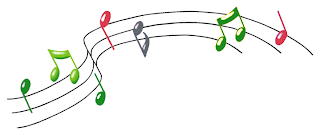In the introduction to his Exposition of the Psalms of David, the medieval theologian Thomas Aquinas described the singing of hymns thus: A hymn is the praise of God with song; a song is the exultation of the mind dwelling on eternal things, bursting forth in the voice.
It would seem that, for the first Christian centuries, believers sang their hymns without stopping to analyse the process. One of the first who did was John Chrysostom (347-407). In his 'Exposition on Psalm 41', he points out that music is an integral part of the human condition: To such an extent, indeed, is our nature delighted by chants and songs that even infants at the breast, if they be weeping or afflicted, are by reason of it lulled to sleep.
Mixing this innate sense of music with the power of words is, Chrysostom continues, a powerful vehicle, affecting the intellect and spiritual standing of the singer.
When God saw that the majority of men were slothful and that they approached spiritual reading with reluctance and submitted to the effort involved without pleasure - wishing to make the task more agreeable and to relieve the sense of laboriousness - He mixed melody with prophecy, so that enticed by the rhythm and melody, all might raise sacred hymns to Him with great eagerness. For nothing so arouses the soul, gives it wings, sets it free from earth, releases it from the prison of the body, teaches it to love wisdom, and to condemn all the things of this life, as concordant melody andsacred song composed in rhythm.
In words very relevant to today's ipod culture, Chrysostom warns that there are bad words and bad music too, and these can similarly affect the human soul. "Those things that are lascivious and vicious in all songs settle in parts of the mind, making it softer and weaker." That is why, he maintains, the devil is keen to fill the mind with dirty things through music.
From the spiritual hymms, however, proceeds much of value, much utility and sanctity, for the words purify the mind and the Holy Spirit descends swiftly upon the mind of the singer. For those who sing with understanding invoke the grace of the Spirit.


Lovely quotations from Chrysostom, thank you.
ReplyDeleteIt would be lovely to know what the music / singing which Chrysostom heard in the fourth century sounded like.
We would probably be looking at a mid-point between this: http://www.smithcreekmusic.com/Hymnology/Sound.Files/Psalm8.mp3 (traditional Jewish synagogue chant) and this: http://www.smithcreekmusic.com/Hymnology/Sound.Files/PaterNoster1.mp3 (7th century Christian, one of the earliest we have actual notation for). Thank you for your comment.
ReplyDelete